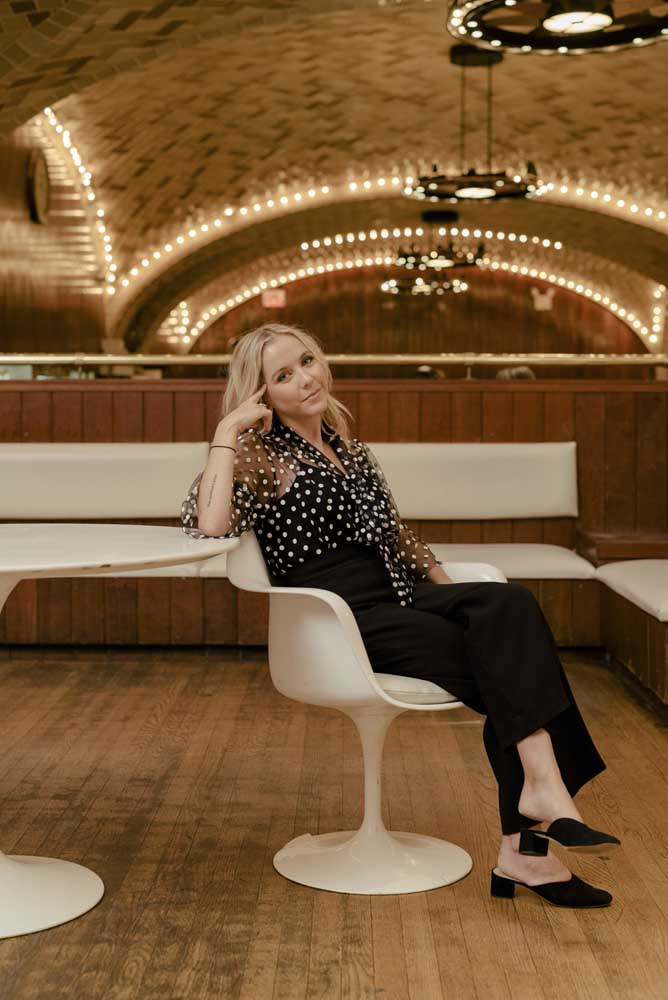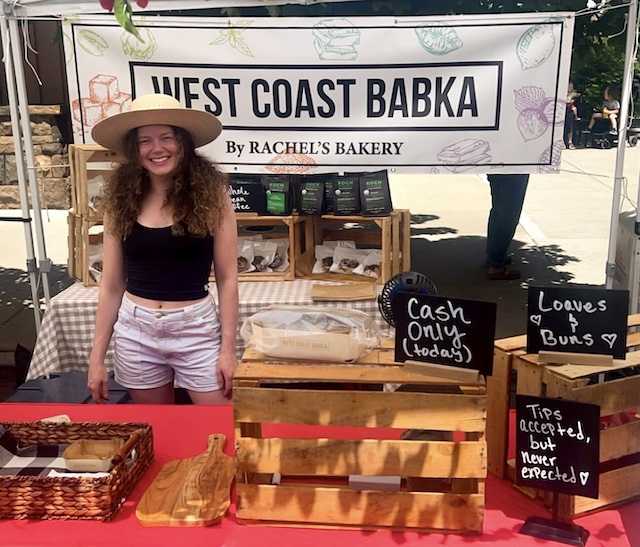‘Sweetbitter’ is a coming-of-age story
Published 12:00 am Monday, April 30, 2018

- Writer Stephanie Danler has adapted her best-selling novel “Sweetbitter,” about the fast-paced seductions of the New York restaurant world, into a TV series for Starz.(Daniel Dorsa/The New York Times)
NEW YORK — The restaurant was fully committed. Cocktails crammed the bar, dishes crowded the tabletops, servers in neat aprons and pressed shirts slipped among the tables, delivering espressos and clearing lobster shepherd’s pie.
New York’s hottest reservation? A film studio in Brooklyn’s Navy Yard at 10 a.m. on a Tuesday in December. This elaborate three-level restaurant had been custom built for “Sweetbitter,” the Starz series adapted from Stephanie Danler’s 2016 best-selling novel about a young woman, Tess, who arrives in New York in 2006 and lands a job at a loosely fictionalized Union Square Cafe. The chef Gabrielle Hamilton called the book “the ‘Kitchen Confidential’ of our time.”
On the Steiner Studios stage, there were two working kitchens — one of them incorporated into the “Sweetbitter” set — plus a food truck parked outside that helped with the overflow. For this scene, plates had been readied for more than 100 extras, with each appetizer and main appearing in three iterations — untouched branzino, half-eaten branzino, just the bones and a stray radish.
In the on-set kitchen, the pots and pans on the stove had just the right amount of dent and scuff, trays of half-full wineglasses glimmered red, gold and pink, like liquid valentines.
The first time Danler, the show’s creator, an executive producer and a service industry veteran, walked through the space, “It was like waking up in my own dream,” she said. “Totally surreal.”
And yet “Sweetbitter,” which begins a six-episode first season Sunday, isn’t really a show about a restaurant. The reason is simple: “People try restaurant shows every year, on network, on cable,” the showrunner Stuart Zicherman explained. “They never work.” (Zicherman exaggerated that frequency, but the network version of “Kitchen Confidential” was canceled after four episodes and last year’s “Feed the Beast” was nixed after a single season, so he has a point.)
Audiences aren’t interested in whether a restaurant can wrangle the best seafood supplier or whether the steak arrives on the table perfectly black and blue. “It’s like, blah blah blah,” Zicherman said, speaking at a latte shop near his home. Even a visit from a food critic isn’t enough to drive an episode.
“Sweetbitter” isn’t about that, he said. “It’s about someone who has never belonged to anything in her life wanting to belong.” The day boat scallops, the chicken liver mousse — they are just the side dishes to a slow-burn coming-of-age story.
So come for the food. Stay for the existential journey.
Food matters to Danler, and even if “Sweetbitter” is a restaurant-set show that’s not about a restaurant, food matters there, too. The episodes don’t try to compete with what Zicherman calls the “food porn” of reality TV. But since taste is central to Tess’ awakening, the camera lingers seductively on an oyster or a glass of wine and then shows how that bite or that sip affects Tess, played here by Ella Purnell, an expressive British ingénue with the eyes-to-face ratio usually found in a giant squid and a seeming ability to soak up the whole world. Danler calls this quality a “reckless absorbency.”
For the most part, the show doesn’t fake the food (the grape-juiced and food-colored drinks are obviously another story), and in terms of hospitality it doesn’t fake much else. “That’s for the restaurant people,” Danler said. “I couldn’t show my face anywhere if I’d cheated.”
These first six episodes unfold over the two weeks of Tess’ probationary period at the restaurant. Her desire for the brooding bartender Jake (Tom Sturridge), her tentative friendship with Simone, her coaching by the restaurant’s manager Howard (Paul Sparks) — the relationships that undergird the book — are only thinly outlined. This season is more or less a “three-hour-prologue,” Danler said.
Danler admitted that “manufactured drama” is hard for her, and in her initial scripts, Tess was almost entirely passive. A first-time television writer who learned the form by locking herself indoors with a stack of pilot scripts, Danler had to push herself to provide action. The first six episodes build to what she calls “our explosive moment,” and that moment is a brief and silent look between two characters.
Slowing down the story is a way to capture some of the imagism that made the book so distinctive, to give the viewer time to appreciate the sights and sounds that mark the world of the restaurant as a seductivespace. It also acknowledges that while sometimes people grow up all at once, more often, like Tess, we become ourselves subtly, incrementally, taste by taste.
“Sweetbitter,” Danler said, is about a moment when “you’re waiting for your life to start and it has already started.”






